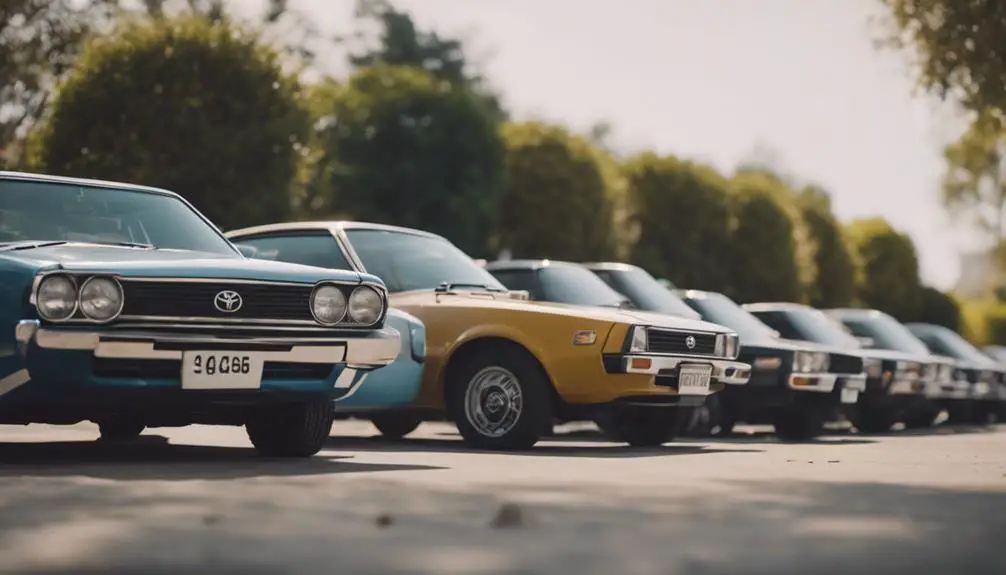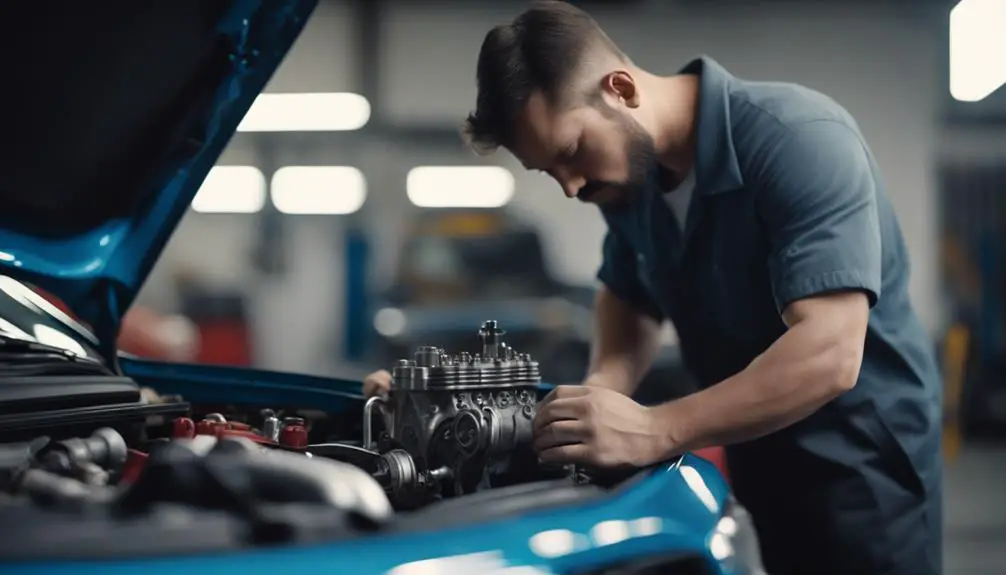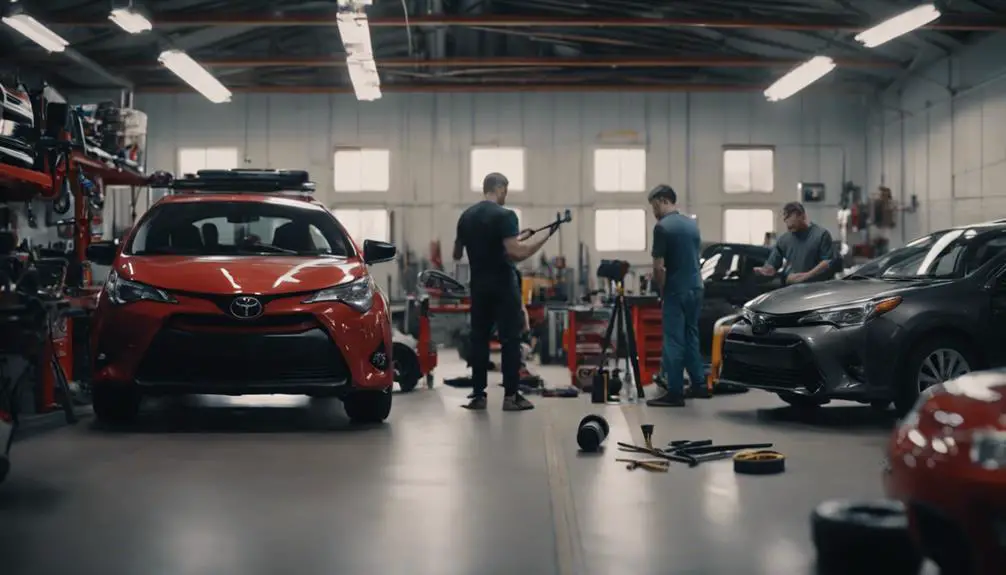Imagine driving the same car for over a million miles — a distance equal to circling the globe 40 times. This isn’t just a hypothetical scenario; it’s a reality for some Toyota owners.
Victor Sheppard, for instance, famously drove his Toyota Tundra for over a million miles and is on track to repeat this extraordinary feat with another Tundra.
Such stories are a testament to Toyota’s reputation for building vehicles that not only last but thrive over extensive mileage.
Toyota has long been synonymous with reliability and longevity, a reputation that has been meticulously built over decades.
These vehicles are not just designed to perform but are engineered to endure, often outlasting expectations and becoming lifelong companions on the road.
In this article, we will look into the factors that contribute to the impressive lifespan of Toyota vehicles, compare their longevity to other brands, and explore how Toyota has consistently maintained its status as a leader in automotive reliability.
Whether you’re a current Toyota owner or considering becoming one, understanding what makes these cars last so long can help you make informed decisions about your next vehicle purchase.
The Concept of Vehicle Lifespan

Vehicle lifespan refers to the duration or extent to which a vehicle remains operational and efficient before it requires significant repairs that are not economically viable or it becomes unsafe to drive.
This lifespan can be quantified in several ways, including mileage, years, and the overall condition of the vehicle.
- Mileage: A common measure of a vehicle’s lifespan is the total miles it has traveled. Historically, reaching 100,000 miles was considered a significant milestone for a vehicle, indicating it was nearing the end of its useful life. However, advancements in automotive technology and manufacturing have significantly extended this threshold. Modern vehicles, especially those known for their reliability, such as Toyota and Honda, are often expected to last for 200,000 miles or more with proper maintenance.
- Years: The age of a vehicle, measured in years, is another critical factor in determining its lifespan. The average lifespan of a vehicle in the United States has steadily increased over the years, with vehicles now averaging around 11.9 years, up from 8.4 years in 1995. This increase is attributed to improvements in vehicle design, materials, and manufacturing processes that enhance durability and longevity.
- Overall Condition: The condition of a vehicle encompasses various aspects, including mechanical integrity, bodywork, and interior quality. A vehicle’s lifespan is not solely determined by its age or mileage but also by how well it has been maintained and cared for. Regular maintenance, such as oil changes, tire rotations, and timely repairs, plays a crucial role in preserving a vehicle’s condition and extending its lifespan.
Importance of Understanding Vehicle Lifespan for Consumers
Understanding the concept of vehicle lifespan is crucial for consumers for several reasons:
- Financial Planning: Knowing the expected lifespan of a vehicle helps consumers make informed decisions regarding the purchase, maintenance, and eventual replacement of their vehicle. It allows for better financial planning, including budgeting for maintenance costs and saving for a future vehicle purchase.
- Maintenance and Safety: Awareness of a vehicle’s lifespan encourages regular maintenance and timely repairs, which are essential for ensuring the vehicle remains safe to drive. Proper maintenance not only extends the lifespan of the vehicle but also enhances its safety, performance, and fuel efficiency.
- Resale Value: The expected lifespan of a vehicle influences its resale value. Vehicles known for their longevity and reliability tend to retain their value better over time. Consumers who understand this aspect can make choices that maximize their investment and potentially yield a higher resale value when it’s time to sell or trade in the vehicle.
- Environmental Impact: Understanding vehicle lifespan also has environmental implications. Extending the life of a vehicle through proper care and maintenance can reduce the need for new vehicles, thereby minimizing the environmental impact associated with vehicle manufacturing and disposal.
Factors Influencing Toyota’s Lifespan

Toyota vehicles are renowned for their longevity, which can be attributed to a combination of high-quality manufacturing, innovative design and engineering, diligent maintenance, and owner usage patterns.
Each of these factors plays a crucial role in determining the lifespan of a Toyota vehicle.
Quality of Manufacturing
Toyota’s commitment to quality manufacturing is deeply ingrained in its corporate culture and operational strategies.
The Toyota Production System (TPS) is a cornerstone of their manufacturing process, emphasizing efficiency, quality, and the elimination of waste.
This system includes principles such as ‘Jidoka’ (automation with a human touch) which ensures that quality issues are addressed immediately during the manufacturing process, preventing defects from moving down the line.
Additionally, Toyota’s ‘Kaizen’ philosophy of continuous improvement helps the company to constantly refine its processes and products.
These manufacturing practices ensure that every Toyota vehicle is built to high standards, contributing significantly to their durability and longevity.
Innovative Design and Engineering
Innovation in design and engineering also plays a vital role in the longevity of Toyota vehicles.
Toyota invests heavily in research and development to enhance the reliability and durability of its cars.
This includes the use of high-quality materials and parts, as well as the integration of advanced technologies that improve the performance and lifespan of the vehicles.
For example, Toyota’s focus on hybrid technology not only addresses environmental concerns but also enhances the durability of the vehicles, as hybrid engines can be less taxing on the vehicle’s overall mechanical systems.
Maintenance and Care
Regular maintenance is critical to maximizing the lifespan of any vehicle, and Toyota is no exception.
Toyota vehicles are designed for long-term durability, but they still require regular check-ups and maintenance to perform at their best.
This includes routine oil changes, tire rotations, brake inspections, and other services as outlined in the vehicle’s owner’s manual.
Proper maintenance can prevent minor issues from becoming major problems and can significantly extend the life of the vehicle.
Owner Usage Patterns
Finally, the way a Toyota is driven and cared for by its owner can greatly influence its lifespan.
Driving habits such as aggressive acceleration, hard braking, and high-speed driving can increase wear and tear on the vehicle and decrease its overall lifespan.
Conversely, gentle driving habits contribute to longer vehicle life.
Environmental factors such as climate and road conditions also play a role; for example, vehicles in colder climates with salted roads may experience more rust and corrosion unless properly maintained116.
Analyzing the Data: Average Lifespan of Toyota

Analyzing the data on the average lifespan of Toyota vehicles reveals a compelling narrative about the brand’s commitment to durability and reliability.
Toyota has consistently been at the forefront of manufacturing vehicles that not only meet but often exceed the industry standards for longevity.
This analysis will delve into the average lifespan of Toyota vehicles, compare these figures with industry averages, and other leading brands, and present the findings through graphs and charts for a clearer understanding.
Toyota’s Average Lifespan
Toyota vehicles are renowned for their longevity, with many models reaching or surpassing the 200,000-mile mark.
According to data from various sources, the average lifespan of a Toyota vehicle ranges from 200,000 to 250,000 miles.
This impressive range is a testament to Toyota’s quality manufacturing processes and innovative design and engineering.
Key Models and Their Lifespan
- Toyota Sequoia: Leading the pack, the Sequoia has a potential lifespan of close to 300,000 miles.
- Toyota Land Cruiser: Known for its durability, the Land Cruiser has a potential lifespan of 280,236 miles.
- Toyota Prius: As a pioneer in hybrid technology, the Prius also boasts a long lifespan, with figures around 250,601 miles.
- Toyota Camry and Corolla: These models are not far behind, with potential lifespans of 230,547 miles and over 300,000 miles, respectively.
Comparison with Industry Averages and Other Brands
When comparing Toyota’s average lifespan to industry averages and other leading brands, Toyota vehicles consistently outperform many of their counterparts.
The industry average lifespan for vehicles is generally considered to be around 200,000 miles, depending on maintenance and driving habits.
- Honda: Closest to Toyota in terms of reliability, Honda vehicles have an average lifespan of approximately 8.6 years or around 200,000 miles.
- Ford: Ford cars tend to last around 198,409 miles or about 10.5 years.
- Tesla: Notably, Tesla vehicles have an average lifespan of around 300,000 miles, comparable to Toyota’s highest-performing models.
Graphical Representation
To visually compare Toyota’s average lifespan with other brands, consider the following table:
| Vehicle | Average Lifespan in Miles |
|---|---|
| Tesla | 300,000 |
| Toyota Sequoia | 300,000 |
| Toyota Corolla | 280,236 |
| Toyota Land Cruiser | 250,601 |
| Toyota Prius | 230,547 |
| Toyota Camry | 200,000 |
| Industry Average, Honda | 198,409 |
Model-Specific Lifespan Analysis

Toyota’s reputation for producing vehicles that offer longevity and reliability is well-documented and respected in the automotive industry.
This analysis delves into the lifespan of some of Toyota’s most popular models: the Camry, Corolla, and RAV4.
By examining these models, we can understand the factors contributing to their durability and why some models may last longer than others.
Expert opinions and insights from Toyota engineers and industry analysts will be included to provide a comprehensive view.
Toyota Camry
The Toyota Camry is often cited for its exceptional longevity, with many vehicles reaching well beyond the 200,000-mile mark.
According to a source from www.quora.com, a Toyota Camry, with proper care and maintenance, can expect to reach between 250,000 and 300,000 miles.
This impressive lifespan can be attributed to Toyota’s commitment to quality manufacturing and the Camry’s design, which emphasizes durability and reliability.
The Camry’s engine and transmission are engineered for long-term performance, and its body is constructed to withstand years of use while minimizing rust and degradation.
Toyota Corolla
The Toyota Corolla, another flagship model, is renowned for its durability, with an estimated lifespan of 230,000 miles before reaching the life expectancy upper limit2.
The Corolla’s longevity is a testament to Toyota’s engineering prowess and its ability to produce vehicles that maintain high performance over many years.
The Corolla’s design focuses on efficiency and reliability, with a simple yet robust engine that requires less maintenance and is less prone to major failures.
This model’s enduring popularity is partly due to its ability to offer consistent performance and reliability over extended periods.
Toyota RAV4
The Toyota RAV4, a compact SUV, boasts an estimated lifespan of 273,000 miles, showcasing Toyota’s ability to engineer vehicles that last.
The RAV4’s longevity is enhanced by its versatile design, capable of handling both city driving and off-road conditions with minimal wear and tear.
The vehicle’s construction includes high-quality materials and components designed to resist corrosion and damage, contributing to its extended lifespan.
The RAV4’s hybrid variants further exemplify Toyota’s commitment to durability, combining efficient performance with long-lasting reliability.
Factors Contributing to Longevity
Several key factors contribute to the longevity of Toyota models:
- Quality Manufacturing: Toyota’s manufacturing processes, including the Toyota Production System (TPS), emphasize efficiency, quality, and the elimination of waste. This approach ensures that each vehicle is built to the highest standards.
- Innovative Design and Engineering: Toyota invests heavily in research and development to create vehicles that are not only efficient and high-performing but also durable and reliable over time.
- Regular Maintenance: Toyota emphasizes the importance of regular maintenance to extend the lifespan of its vehicles. Following the recommended maintenance schedule can significantly impact a vehicle’s longevity.
- Owner Usage Patterns: How a vehicle is driven and cared for by its owner can greatly influence its lifespan. Gentle driving habits and proper care can extend a vehicle’s life.
Expert Opinions
Experts and Toyota engineers alike attribute the brand’s vehicle longevity to a combination of high-quality manufacturing, innovative design, and the company’s focus on reliability as a core value.
According to industry analysts, Toyota’s consistent ranking at the top of reliability and longevity charts is no accident but the result of decades of focusing on what matters most to drivers: a vehicle that lasts.
Real-World Toyota Longevity Stories

Toyota vehicles are renowned for their durability and longevity, often surpassing significant mileage milestones.
Here are some compelling stories of high-mileage Toyotas, including insights from their owners about maintenance routines and driving habits that have helped these vehicles last so long.
Story 1: Victor Sheppard’s Million-Mile Toyota Tundra
Victor Sheppard drove his 2007 Toyota Tundra over a million miles, a testament to the vehicle’s durability.
Sheppard’s Tundra reached this milestone with its original engine, transmission, and paint job, despite being driven about 125,000 miles annually across various states for work.
The truck was serviced 117 times at the dealership, highlighting the importance of regular maintenance in achieving such high mileage.
Toyota exchanged Sheppard’s truck for a new Tundra, planning to study the high-mileage vehicle to gain insights for future models.
Story 2: Mike Neal’s 1.2 Million Mile Toyota Tacoma
Mike Neal’s 2008 Toyota Tacoma has surpassed 1.2 million miles, showcasing the extreme durability of Toyota trucks.
Neal’s story emphasizes not just the vehicle’s robust build but also his meticulous maintenance routine.
He regularly changed the oil and attended to any service needs promptly, which played a crucial role in Tacoma’s longevity.
His driving habits, involving long-distance travel for work, contributed to the high mileage without significant issues.
Story 3: Edna Weber’s 500,000 Mile Toyota Camry
Edna Weber from Largo celebrated reaching 500,000 miles with her 1999 Toyota Camry.
Weber’s approach to maintenance was proactive; she paid close attention to her car’s performance and never hesitated to consult mechanics if something seemed off.
Her regular checks and timely maintenance interventions allowed her Camry to reach this impressive milestone.
Weber’s story highlights the importance of a careful and attentive relationship with one’s vehicle, treating it much like a long-term partnership.
Maintenance Routines and Driving Habits
The common thread among these high-mileage Toyota stories is the owners’ commitment to regular maintenance and their attentive driving habits. Here are some key takeaways:
- Regular Servicing: All owners ensured their vehicles were serviced according to Toyota’s recommended intervals. Regular oil changes, brake checks, and inspections of critical components like the transmission were common practices.
- Proactive Repairs: These owners did not wait for breakdowns to address issues. At the first sign of a problem, whether it was a strange noise or a minor performance drop, they sought professional advice and repairs.
- Consistent Driving Habits: Avoiding aggressive driving styles such as rapid acceleration and hard braking contributed significantly to the vehicles’ longevity. Long-distance driving, which is less taxing on the engine compared to frequent short trips, also played a role.
- Attention to Detail: Owners like Neal and Weber paid close attention to their vehicle’s needs, from checking fluid levels and tire pressure to replacing parts before they failed catastrophically.
These stories not only underscore the built-in durability of Toyota vehicles but also highlight how much vehicle longevity can be influenced by owner care and driving habits.
They serve as compelling testimonials to prospective and current Toyota owners about the potential lifespan of these vehicles when properly maintained and cared for.
Extending Your Toyota’s Lifespan
Maximizing the lifespan of your Toyota involves a combination of regular maintenance, using genuine parts and accessories, and adopting good driving habits.
By following these actionable tips, you can ensure that your Toyota remains reliable, efficient, and safe over many years of service.
Regular Maintenance
Follow the Recommended Maintenance Schedule: Every Toyota model has a recommended maintenance schedule that should be adhered to.
This typically includes servicing at 5,000 miles or 6 months, 15,000 miles or 18 months, and 30,000 miles or 36 months intervals.
Regular maintenance is crucial for identifying potential issues before they become major problems, thus saving you from costly repairs in the long run.
Daily/Periodic Maintenance Checks:
Some components require more frequent attention.
Check your tire pressure regularly to ensure safety, improve handling, and enhance fuel efficiency.
Most models are equipped with a Tire Pressure Monitoring System (TPMS) that can alert you to pressure issues.
Additionally, keep an eye on fluid levels (engine oil, coolant, brake fluid) and top them up or replace them as necessary.
Use of Genuine Parts and Accessories

Opt for Toyota Genuine Parts: Genuine parts are designed to integrate precisely with each Toyota model, ensuring the perfect fit, styling, and performance.
They comply with Toyota’s stringent engineering and testing standards, offering quality, durability, and reliability.
Using genuine parts also means that they are covered by Toyota Australia warranty for the remainder of the New Vehicle Warranty period or 12 months, whichever is greater.
Benefits of Genuine Parts: Toyota Genuine Parts are designed to be compatible with your car’s safety systems and accessories, including airbags and Toyota Safety Sense technologies.
They provide increased performance, stronger efficiency, and last longer than non-original alternatives3. Furthermore, using non-genuine parts can jeopardize your vehicle’s warranty and resale value.
Common Issues to Watch For
Address Common Problems Promptly: While Toyota vehicles are known for their reliability, they are not immune to issues.
Common problems include engine oil leaks, brake wear, and ignition system problems.
Being vigilant and addressing these issues promptly can prevent them from escalating into more significant problems.
Driving Habits
Adopt Good Driving Habits: Gentle driving habits contribute significantly to the longevity of your vehicle.
Avoid aggressive driving styles such as rapid acceleration and hard braking.
Such practices not only enhance fuel efficiency but also reduce stress on your car’s engine, transmission, and brakes.
Importance of Using Genuine Parts and Accessories
Using genuine parts and accessories is crucial for maintaining the integrity of your Toyota.
They ensure that your vehicle continues to meet safety and performance standards set by the manufacturer.
Non-genuine parts may not have been tested to meet these standards, potentially leading to compatibility issues, decreased performance, and even safety risks.
Moreover, using genuine parts helps maintain your vehicle’s warranty and can enhance its resale value.
The Future of Toyota’s Durability
Toyota’s commitment to durability and sustainability is evident in its upcoming models and the innovative technologies it incorporates.
These advancements not only promise to enhance vehicle longevity but also align with broader environmental goals, impacting the lifespan and efficiency of Toyota vehicles.
Upcoming Toyota Models and Technologies
- Next-Generation Batteries and Sonic Technology: Toyota is set to revolutionize its vehicle lineup with the integration of next-generation batteries and sonic technology, aiming to achieve a cruising range of 1,000 km. This significant increase in range will reduce the frequency of charges needed, thereby potentially extending the battery life and overall vehicle durability.
- Modular Construction and Giga Casting: The introduction of a new modular structure and the adoption of giga casting will allow significant component integration. This not only reduces vehicle development costs but also enhances the structural integrity of the vehicles, contributing to their longevity. The streamlined production process is expected to cut down on plant investment and improve manufacturing efficiency.
- Advanced Development in Hybrids and Hydrogen: Toyota continues to lead in hybrid technology, with ongoing research and innovation. The company is also creating a leadership role in hydrogen as an energy source, which includes visible research and test programs. These technologies are crucial for reducing CO2 emissions and enhancing the energy efficiency of vehicles, which in turn contributes to their longevity.
Toyota’s Commitment to Sustainability
Toyota’s sustainability strategy is deeply integrated into its vehicle design and production processes, influencing the lifespan of its vehicles in several ways:
- Environmental Impact Reduction: Toyota’s efforts to minimize its environmental impact include reducing consumption, conserving water, and cutting down on waste. These practices ensure that the production process is as efficient and sustainable as possible, which indirectly contributes to the longevity of the vehicles by using high-quality, sustainable materials.
- Toyota Environmental Challenge 2050: This initiative includes ambitious goals to reduce the life cycle impacts of vehicles. By focusing on every stage from design and manufacture to disposal, Toyota ensures that its vehicles are built to last while minimizing their environmental footprint. This holistic approach to sustainability helps extend the lifespan of vehicles by using materials and processes that are not only durable but also environmentally friendly.
- Use of Recycled Materials: Toyota is pioneering the use of recycled materials in its vehicles, such as PET bottles for car seat fabrics. This not only supports sustainability but also promotes the use of high-quality, durable materials that contribute to the longevity of the vehicles.
- Sustainable Mobility: Toyota’s commitment to sustainable mobility includes the development of hybrid and electric models that offer enhanced fuel efficiency and reduced emissions. These technologies not only meet current environmental standards but are also designed to be future-proof, thereby extending the lifespan of the vehicles.
Wrapping Up
Throughout this article, we have explored various aspects of Toyota’s reputation for durability and longevity. Here are the key points that have been discussed:
- Vehicle Lifespan: Toyota vehicles are known for their exceptional lifespan, often exceeding 200,000 miles with proper care. This longevity is a testament to Toyota’s commitment to quality manufacturing, innovative design, and engineering.
- Factors Influencing Lifespan: Several factors contribute to the longevity of Toyota vehicles, including high-quality manufacturing processes, innovative design and engineering, regular maintenance, and responsible ownership. Toyota’s production techniques, such as the Toyota Production System, ensure that each vehicle meets high standards of quality and durability.
- Model-Specific Analysis: Popular models like the Toyota Camry, Corolla, and RAV4 have been highlighted for their robustness and durability. These models exemplify Toyota’s ability to combine efficiency with long-lasting performance.
- Real-World Longevity Stories: Stories of Toyota vehicles reaching significant mileage milestones, such as Victor Sheppard’s million-mile Tundra and Mike Neal’s 1.2 million-mile Tacoma, illustrate the potential for Toyota vehicles to perform well beyond typical expectations with proper maintenance.
- Maintenance and Care: Regular maintenance is crucial for extending the lifespan of Toyota vehicles. This includes adhering to Toyota’s recommended maintenance schedule, using genuine parts, and addressing common issues promptly.
- Future of Toyota’s Durability: Looking ahead, Toyota continues to innovate with technologies that promise to enhance vehicle longevity. The company’s commitment to sustainability is integral to its strategy, influencing the design and production processes that contribute to the durability of its vehicles.
- Sustainability and Longevity: Toyota’s holistic approach to sustainability, including the use of recycled materials and the development of hybrid and electric models, not only supports environmental goals but also enhances the longevity of its vehicles.
